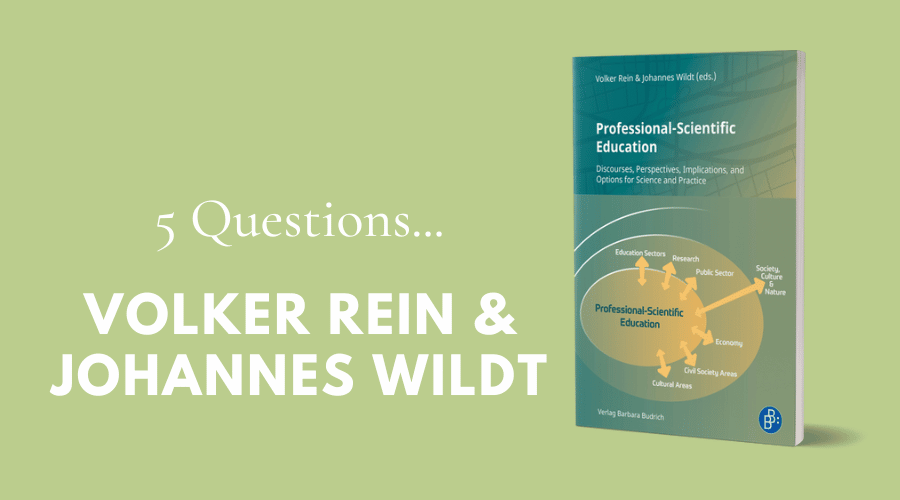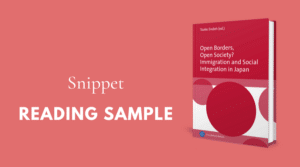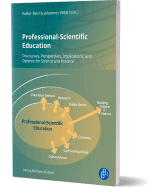 New with Budrich:
New with Budrich:
About the book
There is a growing need for professional-scientific education in science, the labour market and society. However, many key players remain in traditional pillar thinking with regard to professional and scientific education and strong social forces maintain their institutional separation in the education system.
The volume intends to reflect and to enhance the discourse on the relation and integration of professional and scientific education. In a series of contributions by well-known educational scientists from Germany and other countries, the theoretical, conceptual and practical design questions for a qualification are discussed, which sets the connectivity of scientific and professional education within and between courses into an integrative perspective.
Dear Volker Rein, dear Johannes Wildt, what was the impetus for publishing the anthology “Professional-Scientific Education. Discourses, Perspectives, Implications, and Options for Science and Practice” ?
The objectives and the design of education have been moving towards each other for years in many countries at the interface of academic and professional developments. This is related to developments in all sectors of society, framed by the educational policy guiding principle of lifelong learning and a continuous increase of the meaning of science in society.
Regardless of different education systems and problematic situations, numerous design approaches have been developed – theoretically and empirically justified worldwide – without, however, setting in motion transformations that transcend academia and educational systems. The anthology seeks ways out of this impasse. It intends to reflect on and further develop the discourse on the relation and integration of professional and scientific education, the related problems and options that go beyond the systemic differentiating or schismatic views traditionally dominant in academia, practice and politics.
Finally, the anthology’s findings are presented for discussion in theses on the conditions and possibilities for the development of Professional-Scientific Education, open problems and the need for further research and development are discussed and linked to a transformational scientific perspective.
What kind of contributions does the anthology contain?
First, basic issues in the relationship between scientific and professional education are discussed. Based on a dynamic interaction between the scientification of society and the socialisation of science, central questions of Professional-Scientific Education are raised about the relationship between education, competence and professionalism, as well as between theory and
practice. From a diachronic perspective, the development of the relationship between scientific and professional education is traced in its stages, framing embeddings, characteristics and intersections. This gives rise to problems of integrating professional and academic education, which are then discussed at the systemic, qualification-design and teaching levels of action in educational reform.
The design of links between academic education and profession, which in tertiary education is largely defined by the degree programme system, is discussed at the macro level.
Furthermore the curricular design of study programmes or partial study programmes in Higher Education with a view to the connectivity of educational programmes in initial and continuing Vocational Education and Training outside the Higher Education system is analysed at the meso level followed by a discussion of the conceptual foundations of competence development and the design of courses or learning situations at the micro-level, that concretise an integrated Professional-Scientific Education.
From the perspective of your fields of expertise, what are currently the biggest challenges to end the traditional silo thinking of professional and academic education?
In contrast, the manifold implicit correlation between professional and scientific education and the evident demand for comprehensive design concepts are often neglected or ignored inside the academic institutions as well as in other education sectors. Key social actors persist culturally (‚mind sets‘) and ideologically in an outdated silo thinking of a separation between professional and academic education, which has led to a schism within the education system. Policymakers are perpetuating this drift between educational pathways, as evidenced by the amendment of legislation on academic and non-academic education in Germany, for example, in recent years, to increase permeability between the educational sectors. In essence however, they miss the point of a consistent integration that could do justice to the state of knowledge of today’s educational research and the resulting practical reforms.
In view of changing societal requirements, it is overdue to put this development to the test for further consideration. A shift is needed from the predominant systemic focus to a comprehensive conceptual thinking across the systems which concerns e.g. a comprehensive understanding of professional-scientific polyvalence, of practice referring to both intra-academic and extra-academic areas, and a transdisciplinary and a transformative perspective of Professional-Scientific Education designed in the medium of profession and science.
Relevant social actors largely agree that science education is an essential factor for progress and innovation. They are less than unanimous on the question of the quality of education to shape the upcoming social, economic, ecological and cultural transformations accordingly. The controversies move between utilitarian-economic and technological perspectives on the one hand, which at best promise questionable trickle-down effects for the common good. On the other hand is a Professional-Scientific Education that focuses on a societal responsibility for social, economic, ecological and cultural problems from a common good perspective.
Which actors need to be brought (more) into the dialogue for this?
Depending on the specific country situations and discourses on education the dialogue should include policymakers and legislators, researchers and practitioners from Higher Education and other education sectors, societal stakeholders of the private and public labour markets, other societal segments and last but least the learners as well.
Transnational stakeholders e.g. from European Union institutions might promote and facilitate these dialogues as well – depending on a consensus with the national actors concerning the understanding and perspective of Professional-Scientific Education (e.g. skills and behaviour orientation vs. comprehensive understanding of education and competence; utilitarian orientation vs common good perspective).
Does the situation in Germany differ from that in other countries and if so, how?
From a systemic point of view one might identify many differences in terms of professional and scientific education structures and legislations, institutional specifics and fabrics etc. depending on which country or countries one might compare with. Regardless of the differences between national education systems and their specific problems the major challenges and the demanding societal requirements in terms of education are basically similar, which underlines the need for an international discourse as it is promoted by the approach of this anthology.
Short vitae of the editors
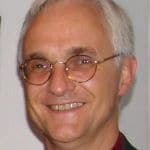 Dr. Volker Rein is an education researcher on issues of German, European and international programme, policy and system developments at the interface of vocational and academic education. In research and development, he is particularly concerned with the compatibility of vocational and academic education and qualification in terms of appropriate competence acquisition in educational programmes and qualifications. In this regard, he has many years of expertise in research, development and consultancy in Germany, the European Union, the USA and at UNESCO. In the above-mentioned function, he has worked for many years at the Federal Institute for Vocational Education and Training in Bonn. Volker Rein holds a doctorate and an M.A. in Social Sciences (Free University of Berlin) combined with longitudinal field research experience in Sub-Saharan Africa.
Dr. Volker Rein is an education researcher on issues of German, European and international programme, policy and system developments at the interface of vocational and academic education. In research and development, he is particularly concerned with the compatibility of vocational and academic education and qualification in terms of appropriate competence acquisition in educational programmes and qualifications. In this regard, he has many years of expertise in research, development and consultancy in Germany, the European Union, the USA and at UNESCO. In the above-mentioned function, he has worked for many years at the Federal Institute for Vocational Education and Training in Bonn. Volker Rein holds a doctorate and an M.A. in Social Sciences (Free University of Berlin) combined with longitudinal field research experience in Sub-Saharan Africa.
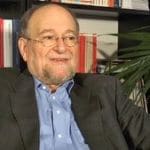 Prof. Dr. Dr. h.c. Johannes Wildt, Dipl.-Psych., studied psychology, educational science and sociology and worked as a university planner and university academic developer in Hanover, Hamburg, Bielefeld and Dortmund, where he was head of the University Centre for Teaching and Learning as a university as lecturer at the Faculty of Educational Science at the TU from 1997 to 2012. His research focuses on innovative teaching and learning, curriculum development as well as continuing education and counselling in Teaching and Learning. In doing so and in assuming numerous offices and functions, such as the chairmanship of the German Organization for Teaching and Learning in Higher Education, he has always been committed to the professionalisation of teaching and learning and its development as a scientific field.
Prof. Dr. Dr. h.c. Johannes Wildt, Dipl.-Psych., studied psychology, educational science and sociology and worked as a university planner and university academic developer in Hanover, Hamburg, Bielefeld and Dortmund, where he was head of the University Centre for Teaching and Learning as a university as lecturer at the Faculty of Educational Science at the TU from 1997 to 2012. His research focuses on innovative teaching and learning, curriculum development as well as continuing education and counselling in Teaching and Learning. In doing so and in assuming numerous offices and functions, such as the chairmanship of the German Organization for Teaching and Learning in Higher Education, he has always been committed to the professionalisation of teaching and learning and its development as a scientific field.
Order now via our shop
